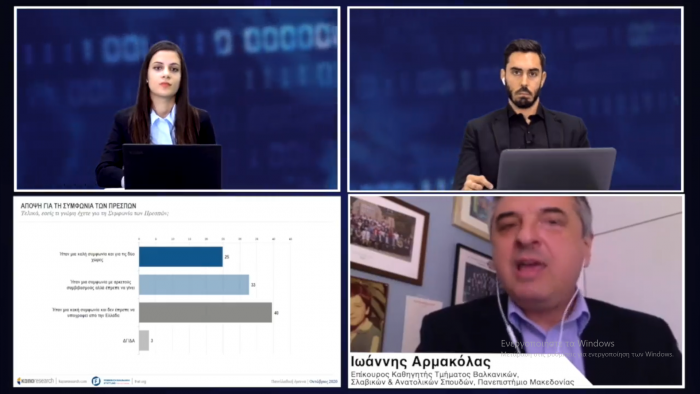Commenting on a recent poll on behalf of Friedrich-Naumann-Stiftung East and Southeast Europe on the Prespa Agreement in Greece, according to which there is an aggregating 16% in favor of the agreement (in contrast with 2018) which now stands at 25%, while a 40% (54% in 2018) still believes that the Agreement is bad, Ioannis Armakolas stressed that:
“There is a remarkable percentage of those questioned, who are more moderate voters of New Democracy party, who do not have a hard, rejecting approach towards North Macedonia, who could have supported the Agreement but during the crisis and the negotiations period they simply identified themselves with the contrary view, due to their political identification or even the political polarization of that time (…) At this moment, the same people somehow are “liberated”, they have “loosen up” their view in relation to the matter and that happens, because they are getting an indirect message by the government, that despite the fact that ND has been against the Prespa Agreement while in opposition, the government has now indirectly adopted it and wants its implementation (…) This is a well-known phenomenon in political science. It is called “queuing” or “leadership effect”, voters are following their leader’s or their party’s policy. Since the government and ND party have soften their position, their moderate voters just follow it”.
During a discussion organized by the Young Liberals in Greece, Armakolas also commented on a possible role that Greece could undertake in the Balkans.
You may watch the discussion in Greek here: (51: 04 – έως 57:36)




